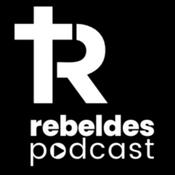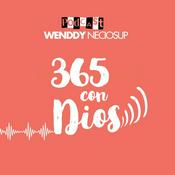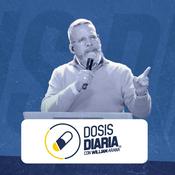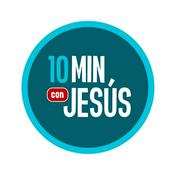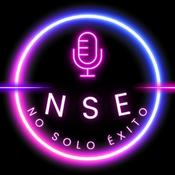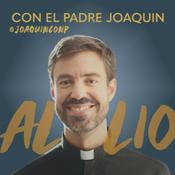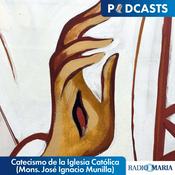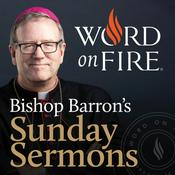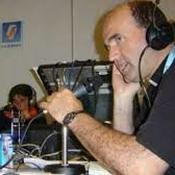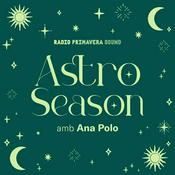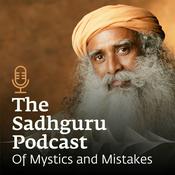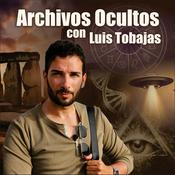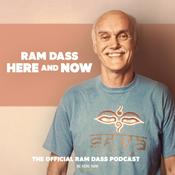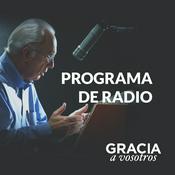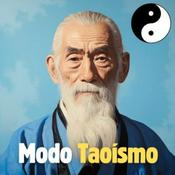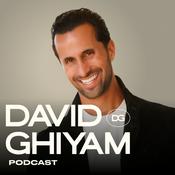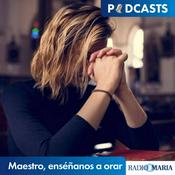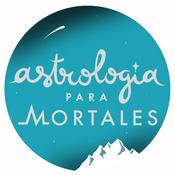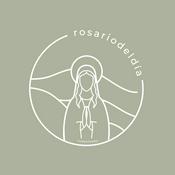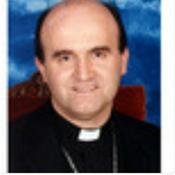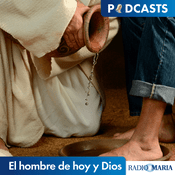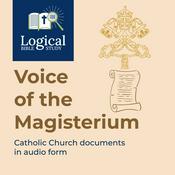557 episodios
- To support the ministry and access exclusive content, go to: http://patreon.com/logicalbiblestudy
For complete verse-by-verse audio commentaries from Logical Bible Study, go to: https://mysoundwise.com/publishers/1677296682850p
Mark 3: 20-21 - 'Jesus' relatives were convinced he was out of his mind.'
Got a Bible question? Send an email to [email protected], and it will be answered in an upcoming episode! - To support the ministry and access exclusive content, go to: http://patreon.com/logicalbiblestudy
For complete verse-by-verse audio commentaries from Logical Bible Study, go to: https://mysoundwise.com/publishers/1677296682850p
Mark 3: 13-19 - 'He appointed twelve to be his companions.'
Catechism of the Catholic Church Paragraphs:
- 551-552 (in 'The Keys of the Kingdom') - From the beginning of his public life Jesus chose certain men, twelve in number, to be with him and to participate in his mission. He gives the Twelve a share in his authority and “sent them out to preach the kingdom of God and to heal"... Simon Peter holds the first place in the college of the Twelve; Jesus entrusted a unique mission to him. (abbreviated)
- 787 (in 'The Church is communion with Jesus') - From the beginning, Jesus associated his disciples with his own life, revealed the mystery of the Kingdom to them, and gave them a share in his mission, joy, and sufferings (abbreviated)
- 858 (in 'The Apostle's Mission') - He appointed twelve, whom also he named apostles, to be with him, and to be sent out to preach.” From then on, they would also be his “emissaries” (Greek apostoloi). In them, Christ continues his own mission: “As the Father has sent me, even so I send you." (abbreviated)
- 1577 (in 'Who can receive the Sacrament of Holy Orders') - “Only a baptized man (vir) validly receives sacred ordination.” The Lord Jesus chose men (ver) to form the college of the twelve apostles, and the apostles did the same when they chose collaborators to succeed them in their ministry. The college of bishops, with whom the priests are united in the priesthood, makes the college of the twelve an ever-present and ever-active reality until Christ’s return. The Church recognizes herself to be bound by this choice made by the Lord himself. For this reason the ordination of women is not possible.
- 765 (in 'The Church' - instituted by Jesus Christ') - The Lord Jesus endowed his community with a structure that will remain until the Kingdom is fully achieved. Before all else there is the choice of the Twelve with Peter as their head. Representing the twelve tribes of Israel, they are the foundation stones of the new Jerusalem. The Twelve and the other disciples share in Christ’s mission and his power, but also in his lot. By all his actions, Christ prepares and builds his Church.
- 1673 (in 'Various forms of Sacramentals') - When the Church asks publicly and authoritatively in the name of Jesus Christ that a person or object be protected against the power of the Evil One and withdrawn from his dominion, it is called exorcism. Jesus performed exorcisms and from him the Church has received the power and office of exorcizing (abbreviated).
Got a Bible question? Send an email to [email protected], and it will be answered in an upcoming episode! - This is a bonus episode, where we go through some listener feedback that has been sent into the ministry.
To support the ministry and access exclusive content, go to: http://patreon.com/logicalbiblestudy
For complete verse-by-verse audio commentaries from Logical Bible Study, go to: https://mysoundwise.com/publishers/1677296682850p - To support the ministry and access exclusive content, go to: http://patreon.com/logicalbiblestudy
For complete verse-by-verse audio commentaries from Logical Bible Study, go to: https://mysoundwise.com/publishers/1677296682850p
Mark 3: 7-12 - ''He warned them not to make him known as the Son of God.'
Catechism of the Catholic Church Paragraphs:
- 1504 (in 'Christ the Physician') - Often Jesus asks the sick to believe. He makes use of signs to heal: spittle and the laying on of hands, mud and washing. The sick try to touch him, “for power came forth from him and healed them all.” And so in the sacraments Christ continues to “touch” us in order to heal us.
Got a Bible question? Send an email to [email protected], and it will be answered in an upcoming episode! - To support the ministry and access exclusive content, go to: http://patreon.com/logicalbiblestudy
For complete verse-by-verse audio commentaries from Logical Bible Study, go to: https://mysoundwise.com/publishers/1677296682850p
Mark 3: 1-6 - 'Is it against the law on the sabbath day to save life?'
Catechism of the Catholic Church Paragraphs:
- 574 (in 'Jesus and Israel') - From the beginning of Jesus’ public ministry, certain Pharisees and partisans of Herod together with priests and scribes agreed together to destroy him (abbreviated)
- 2173 (in 'The Sabbath Day') - The Gospel reports many incidents when Jesus was accused of violating the sabbath law. But Jesus never fails to respect the holiness of this day. He gives this law its authentic and authoritative interpretation: “The sabbath was made for man, not man for the sabbath.” With compassion, Christ declares the sabbath for doing good rather than harm, for saving life rather than killing. The sabbath is the day of the Lord of mercies and a day to honor God. “The Son of Man is lord even of the sabbath.”
- 1859 (in 'Mortal Sin and Venial Sin') - Mortal sin requires full knowledge and complete consent. It presupposes knowledge of the sinful character of the act, of its opposition to God’s law. It also implies a consent sufficiently deliberate to be a personal choice. Feigned ignorance and hardness of heart do not diminish, but rather increase, the voluntary character of a sin.
- 591 (in 'Jesus and Israel's faith in God') - Such a demand for conversion in the face of so surprising a fulfillment of the promises allows one to understand the Sanhedrin’s tragic misunderstanding of Jesus: they judged that he deserved the death sentence as a blasphemer. The members of the Sanhedrin were thus acting at the same time out of “ignorance” and the “hardness” of their “unbelief" (abbreviated).
Got a Bible question? Send an email to [email protected], and it will be answered in an upcoming episode!
Más podcasts de Religión y espiritualidad
Podcasts a la moda de Religión y espiritualidad
Acerca de Daily Gospel Exegesis
This is a short daily podcast, where we go through an exegesis of the gospel reading from the current day's Mass.
The Catholic Church teaches that in order to understand the Scriptures, we must start with the literal sense - in other words, how the original hearers of the text would have understood it.
That is our aim in this podcast - to help understand what the gospel writers (and more importantly, Jesus) were intending to communicate in today's reading, as well as providing links to the Catechism. Each episode is short and designed to be listened to before or after attending daily Mass.
Sitio web del podcastEscucha Daily Gospel Exegesis, Meditaciones diarias y muchos más podcasts de todo el mundo con la aplicación de radio.es
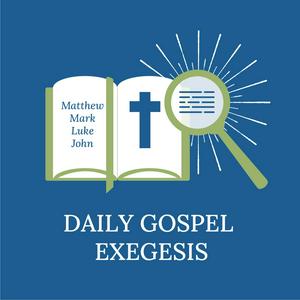
Descarga la app gratuita: radio.es
- Añadir radios y podcasts a favoritos
- Transmisión por Wi-Fi y Bluetooth
- Carplay & Android Auto compatible
- Muchas otras funciones de la app
Descarga la app gratuita: radio.es
- Añadir radios y podcasts a favoritos
- Transmisión por Wi-Fi y Bluetooth
- Carplay & Android Auto compatible
- Muchas otras funciones de la app


Daily Gospel Exegesis
Escanea el código,
Descarga la app,
Escucha.
Descarga la app,
Escucha.





